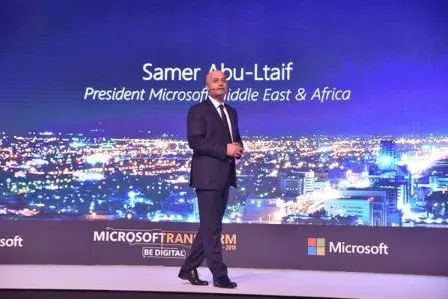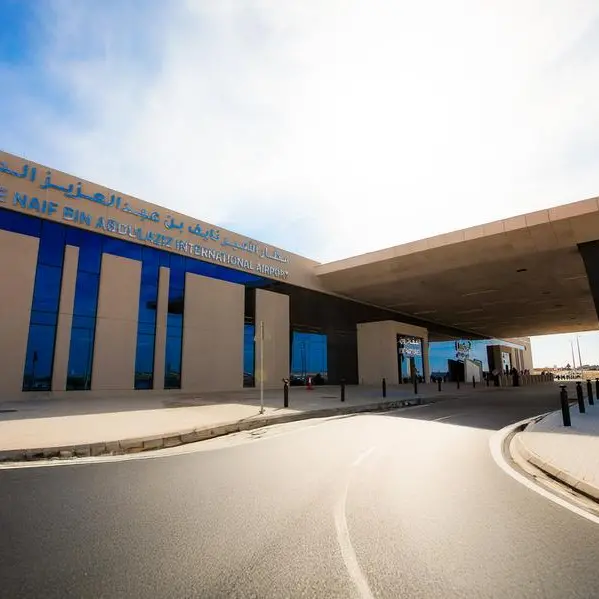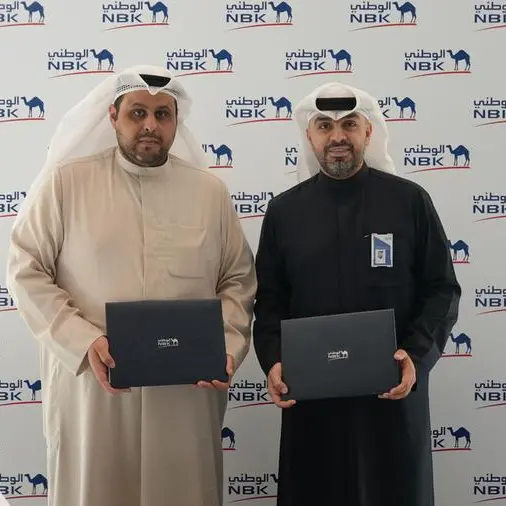PHOTO
FOR IMMEDIATE RELEASE:
Date: Dec 2nd 2021
Microsoft Arabia
Riyadh- KSA : Samer Abu-Ltaif, Microsoft's Corporate VP & President of Middle East and Africa (MEA) region, praised Saudi Arabia's great transition on the "digital economy" map, which has become one of the highlights of its evolution of future economic development and diversification.
Abu-Ltaif's observation comes after his visit to Saudi Arabia last week, where he lauded the Saudi government’s ambitious vision and initiatives, as well as, maintaining a privileged position to advance the course of digitization of its national economy, especially since the value of the digital economy will exceed US$100 trillion globally by 2025. He commended Microsoft’s ability to enable the public and private sectors to achieve these transformations, with its innovations and expertise that will help it achieve technological economic sustainability.
Microsoft's MEA Corporate VP & President noted that there is a great tendency of the public and private sectors in Saudi Arabia to take advantage of the enormous technological opportunities and transition to the era of cloud and innovation. He also declared that Microsoft would contribute directly and indirectly to establishing the Kingdom's strong and evolving digital structure, ramp up its digital transformation process, and support its ambitious vision of building a digital society, digital government, and a thriving digital economy.
Praising the response of the Saudi digital transformation system in dealing with the emerging COVID-19 pandemic in the sectors of work, health, education, trade, and finance, Abu-Ltaif explained that Microsoft contributed to overcoming the disruption during the pandemic through digital and cloud solutions in the public and private sectors in the Kingdom, specifically in the field of distance education through its strategic partnership with the Ministry of Education.
Moreover, Abu-Ltaif emphasized Microsoft's full support to the Green Saudi Arabia Initiative launched by the Crown Prince Mohammed bin Salman, in March, by contributing to resist the challenges of climate change; demonstrating Microsoft's technological ability to achieve the initiative's chief goal and reach the "zero-carbon" level, which coincides with the Microsoft's aims to become carbon negative by 2030. Microsoft aims to ultimately eliminate the carbon footprint by 2050, to achieve the planet’s environmental sustainability.
Abu-Ltaif further expressed that his visit will grow and elevate the prominent and long-standing relationship between Microsoft Arabia and its clients and partners in Saudi Arabia in the future, with a commitment to increase Microsoft's impact to empower them in various fields and businesses.
-Ends-
© Press Release 2021
Disclaimer: The contents of this press release was provided from an external third party provider. This website is not responsible for, and does not control, such external content. This content is provided on an “as is” and “as available” basis and has not been edited in any way. Neither this website nor our affiliates guarantee the accuracy of or endorse the views or opinions expressed in this press release.
The press release is provided for informational purposes only. The content does not provide tax, legal or investment advice or opinion regarding the suitability, value or profitability of any particular security, portfolio or investment strategy. Neither this website nor our affiliates shall be liable for any errors or inaccuracies in the content, or for any actions taken by you in reliance thereon. You expressly agree that your use of the information within this article is at your sole risk.
To the fullest extent permitted by applicable law, this website, its parent company, its subsidiaries, its affiliates and the respective shareholders, directors, officers, employees, agents, advertisers, content providers and licensors will not be liable (jointly or severally) to you for any direct, indirect, consequential, special, incidental, punitive or exemplary damages, including without limitation, lost profits, lost savings and lost revenues, whether in negligence, tort, contract or any other theory of liability, even if the parties have been advised of the possibility or could have foreseen any such damages.




















